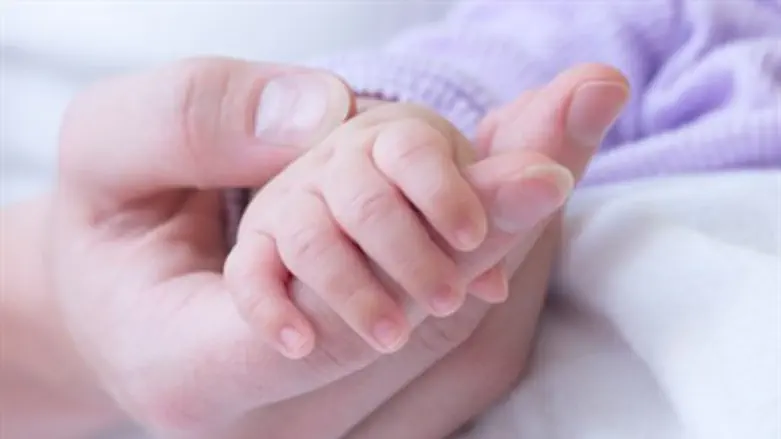
In a medical first and marking a milestone in infertility treatment, a woman has given birth to a baby using a transplanted womb. The 1.8kg (3.9lb) boy was born prematurely, but is healthy, and has been described by his parents as "amazing" and "our sweet Vincent, who does not know yet, that he has made history."
The mother, an unidentified 36-year-old Swedish woman, has Mayer-Rokitansky-Kuester-Hauser (MRKH) syndrome, a disease in which women are born without part or all of their womb. The syndrome was first discovered when she was a 15-year-old high-schooler, leaving her devastated and with the belief that the only way for her to become a mother was through surrogacy.
Years later, she heard of a research project being conducted by scientists and clinicians, and led by Professor Matts Brännström, at the University of Gothenburg in Sweden. She contacted them, and they suggested a womb transplant from a donor.
In 2012, following a round of In Vitro Fertilization (IVF), the womb transplant took place. A woman in her 60s, who had gone through menopause several years earlier, agreed to donate her womb, which was removed, and then implanted in the younger woman. The operation was a success, and the recipient underwent ongoing surveillance to ensure the reproductive organs had been successfully absorbed.
Six months after the surgery, the woman received her monthly cycle, indicating "that the uterus has been well received into the body." Then, a year after the transplant, doctors decided they were ready to implant one of the previously frozen embryos.
The couple became pregnant, but cause for concern was not yet gone. At thirty-two weeks, 2 months before the desired date of birth, the woman developed pre-eclampsia and the fetal heart rate became abnormal. Joint discussion between the doctors and the couple ensued, and it was determined to perform an immediate Caesarean section. After several days of observation, the baby boy was declared healthy, and released from the hospital.
Both parents and doctors are ecstatic. In an interview with the Associated Press, the father said: "It was a pretty tough journey over the years, but we now have the most amazing baby." However, amidst the celebrating, the new parents will soon have to determine if they want a second child, due to anti-rejection drugs the woman is taking, which could be harmful in the long run.
Brannstrom, who led the transplant team, described the birth as a joyous occasion. "That was a fantastic happiness for me and the whole team, but it was an unreal sensation also because we really could not believe we had reached this moment," he told BBC News. "Our success is based on more than 10 years of intensive animal research and surgical training by our team and opens up the possibility of treating many young females worldwide that suffer from uterine infertility."
Although risks and doubts remain about the safety and effectiveness of the procedure, the University of Gothenburg team is focusing on the future, and the eight other couples they are now working with, who have demonstrated a similar need.
As Liza Johannesson, a gynecological surgeon on the team, stated: "It gives hope to those women and men that thought they would never have a child, that thought they were out of hope."